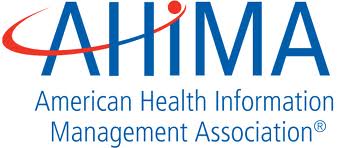Application of EHR Payment Incentives for Providers Not Receiving Other Incentive Payments
Advancing the adoption of certified electronic health records (EHRs) for long-term, and post acute care, and behavioral health providers will help support the implementation of the nationwide health information technology (IT) infrastructure and deployment of new models of care delivery. Their participation is essential to improve coordinated care for the most vulnerable patients. These findings from a nine-month study undertaken by the American Health Information Management Association Foundation for the U.S. Department of Health and Human Services (HHS) were highlighted in a “Report to Congress on the Application of EHR Payment Incentives for Providers Not Receiving Other Incentive Payments.”
The study and report were delivered to Congress on Aug. 9 in response to a requirement in the Health Information Technology for Economic and Clinical Health Act (HITECH Act), part of the American Recovery and Reinvestment Act (ARRA). The Foundation is the 501 (c) 3 affiliate of the American Health Information Management Association (AHIMA).
The AHIMA Foundation’s study and the HHS report to Congress categorized those healthcare providers currently not eligible to receive incentive payments to implement certified EHRs into four categories: long-term and post-acute care: behavioral health, safety net (Federally Qualified Health Centers and Rural Health Clinics) and other. These healthcare providers deliver many of the services to some of the most vulnerable and costly patients and their care would often benefit the most from electronic health information exchange and communication.
“When health information can be seamlessly shared and accessed by providers throughout the patient’s entire continuum of care – which often consists of medical teams in different specialty areas, locations, practice settings – patients will benefit from improved outcomes,” said AHIMA CEO Lynne Thomas Gordon, MBA, RHIA, CAE, FACHE, FAHIMA. “AHIMA looks forward to working with HHS and other stakeholders to determine solutions that will improve and accelerate the exchange of information across providers.”
Additional key conclusions of the study included:
- A lag in adoption of certified EHR technology solutions and health information exchange by these ineligible providers may affect the goals of Medicare and Medicaid EHR Incentive Program and deployment of new models of care delivery and coordination.
- Filling gaps in standards is important, but not sufficient, to support the interoperable exchange of health information on behalf of vulnerable persons who receive services across the care continuum.
AHIMA has previously highlighted many of these issues, most recently at the 9th Long-Term and Post-Acute-Care Summit on June 21.
“We all benefit from a coordinated healthcare system that rallies around the patient,” said Michelle Dougherty, RHIA, AHIMA Foundation’s director of research and development. “Use of certified EHRs that support interoperable health information exchange across care settings can break down these silos.”
The HHS report noted that following the completion of the study, the Centers for Medicare and Medicaid Services (CMS) and the National Coordinator for Health Information Technology published a Request for Information to identify potential policy and programmatic changes to accelerate electronic health information exchange. In response to the comments, the Department “released its strategy for accelerating health information exchange which provides a comprehensive approach to accelerating health information exchange across all care settings and providers, including providers not eligible for the EHR incentive programs, such as long-term and post-acute care and behavioral health providers.”
Download the study and report.

